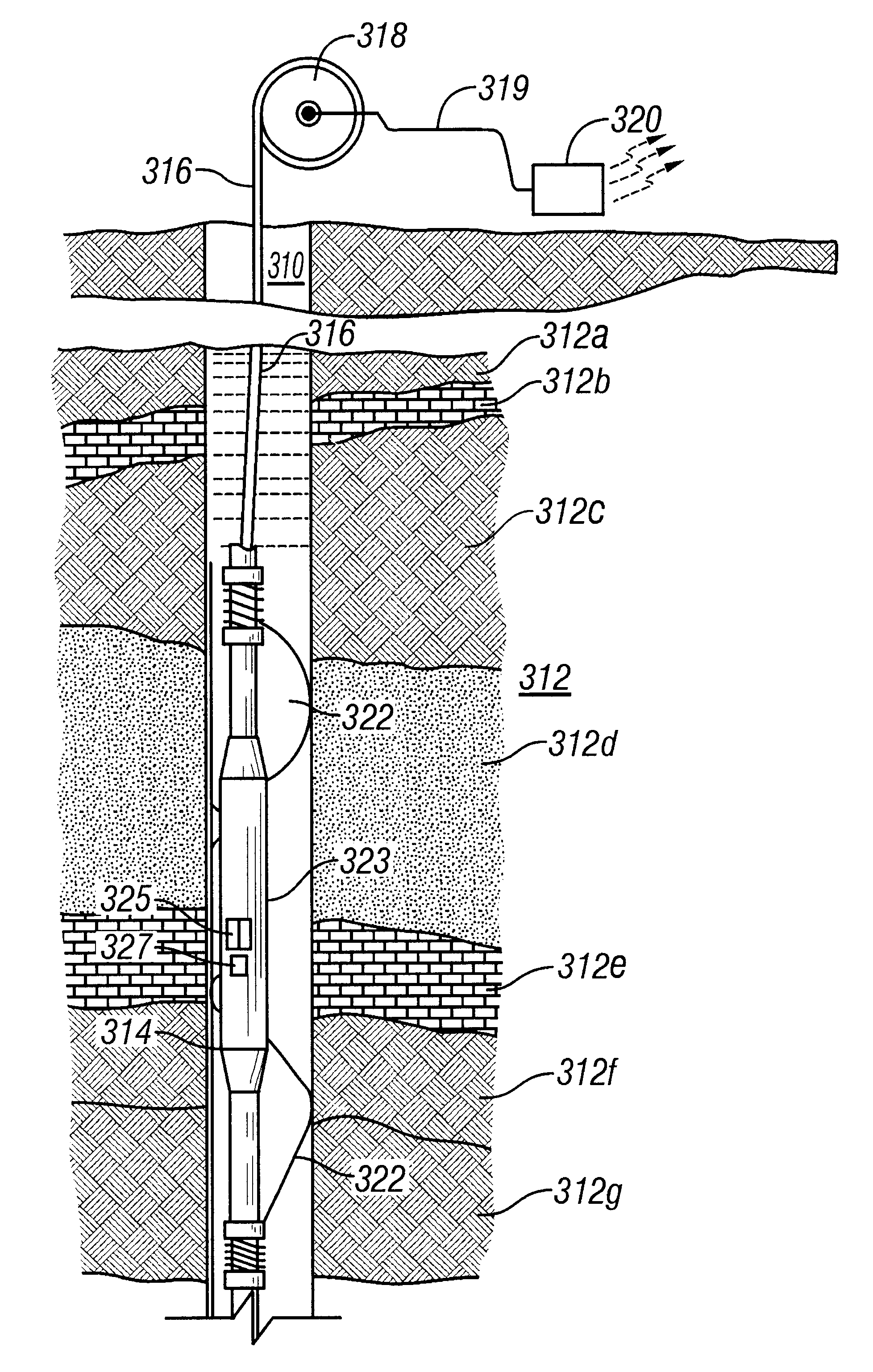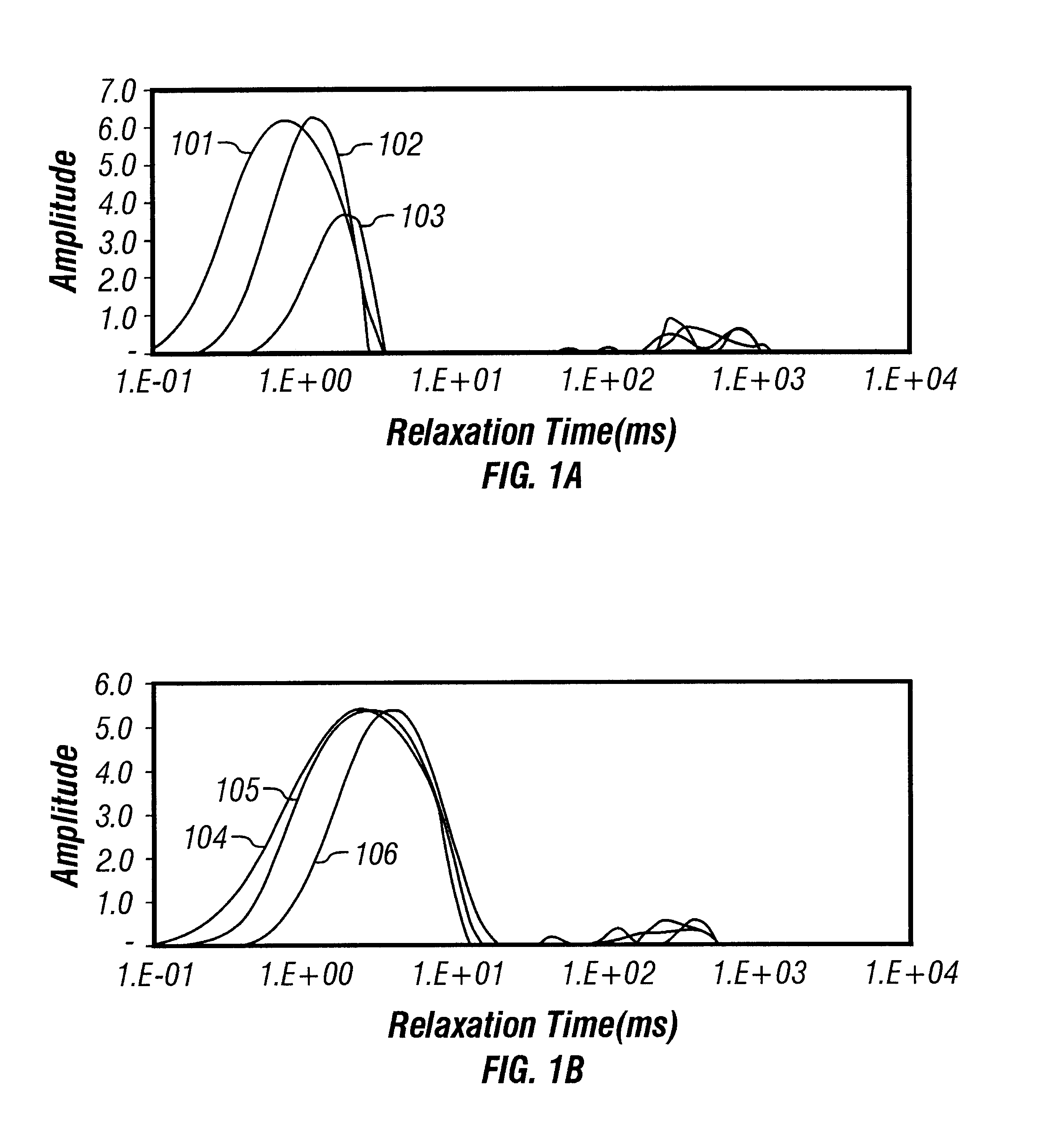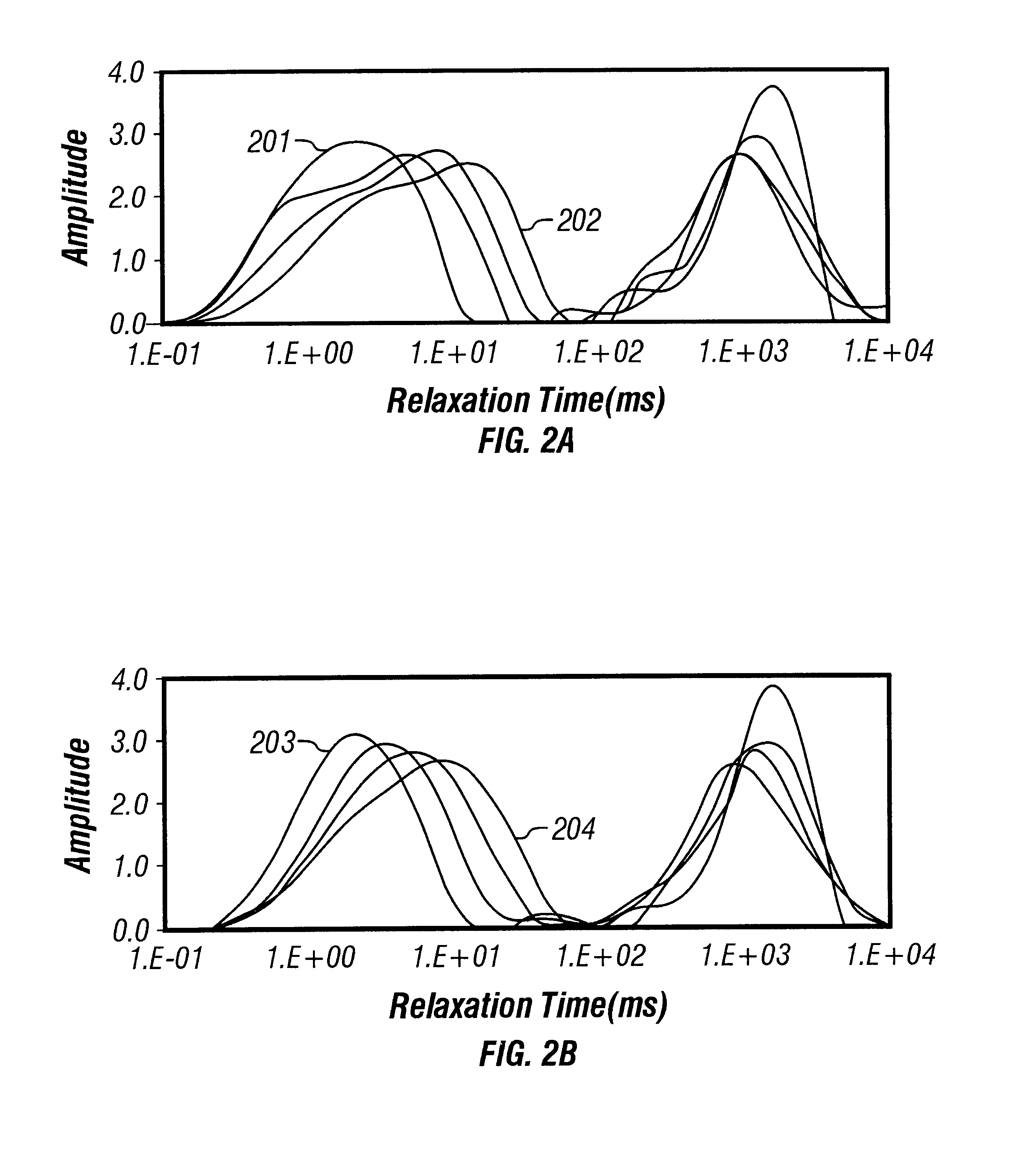In-situ heavy-oil reservoir evaluation with artificial temperature elevation
a technology of artificial temperature elevation and reservoir evaluation, which is applied in the direction of borehole/well accessories, survey, instruments, etc., can solve the problems of heavy oils, difficult to quantify hydrocarbon saturation using resistivity-based and induction-based logging techniques, and change of environment temporarily
- Summary
- Abstract
- Description
- Claims
- Application Information
AI Technical Summary
Benefits of technology
Problems solved by technology
Method used
Image
Examples
Embodiment Construction
The present invention is an apparatus and a method that varies the temperature of the rock formation within a confined, local region adjacent to a borehole wall. Any one of many known devices for NMR measurements may be adapted for the present invention. For example, when making measurements while drilling, a modification of an apparatus such as that disclosed in U.S. Pat. No. 6,247,542 to Kruspe et al, the contents of which are fully incorporated herein by reference, may be used. When making NMR measurements with a wireline logging tool, a suitable apparatus is a modification of the device shown in U.S. Pat. No. 5,712,566 to Taicher et al, the contents of which are fully incorporated herein by reference. These particular patents have been cited only as examples of devices that may be modified in a straightforward manner as described below, and the present invention may be a modification of any suitable NMR logging device. In particular, for efficiency of heating, it is desirable to...
PUM
 Login to View More
Login to View More Abstract
Description
Claims
Application Information
 Login to View More
Login to View More - R&D
- Intellectual Property
- Life Sciences
- Materials
- Tech Scout
- Unparalleled Data Quality
- Higher Quality Content
- 60% Fewer Hallucinations
Browse by: Latest US Patents, China's latest patents, Technical Efficacy Thesaurus, Application Domain, Technology Topic, Popular Technical Reports.
© 2025 PatSnap. All rights reserved.Legal|Privacy policy|Modern Slavery Act Transparency Statement|Sitemap|About US| Contact US: help@patsnap.com



